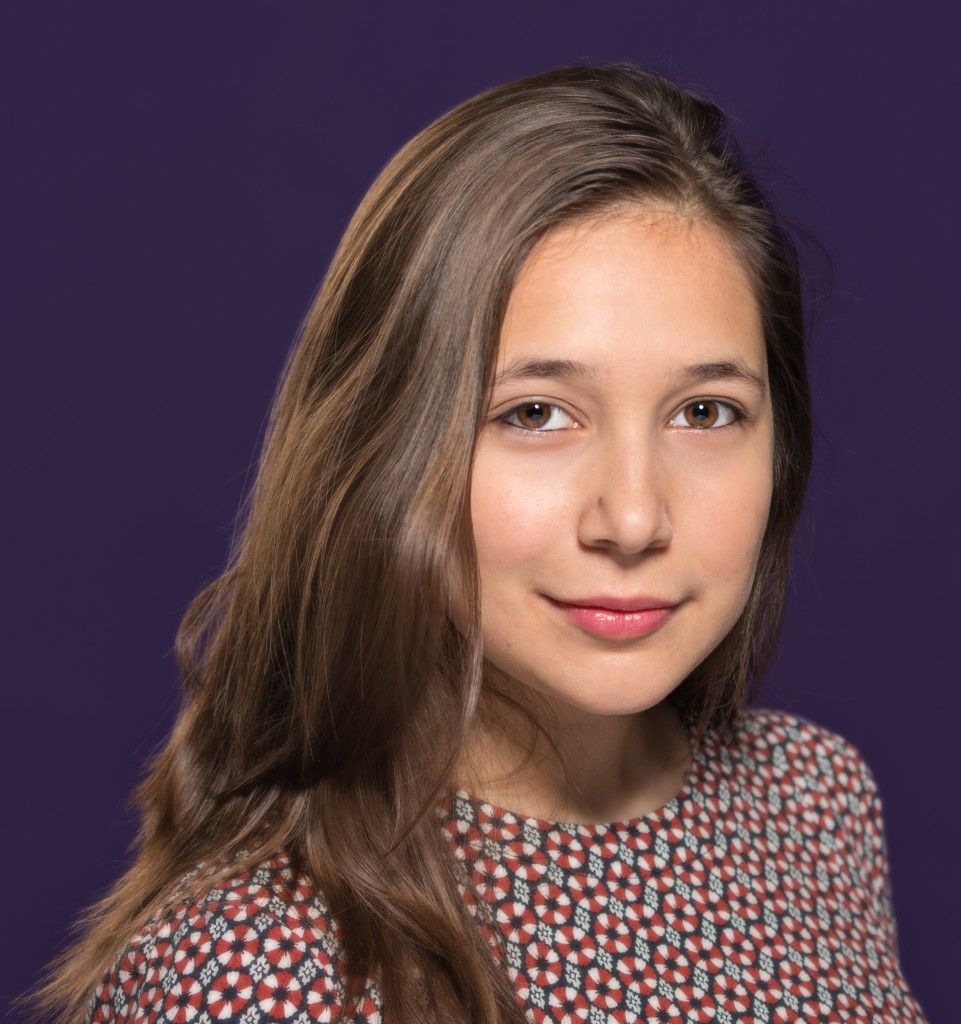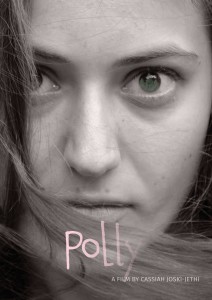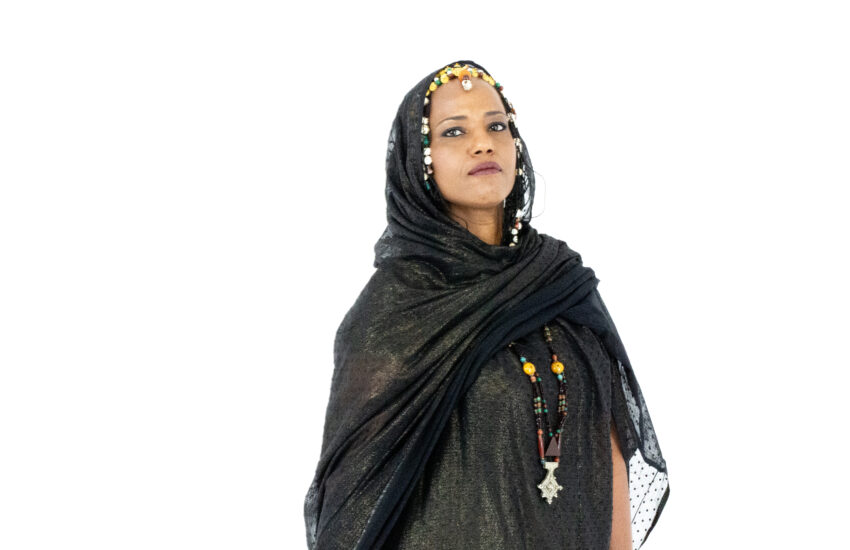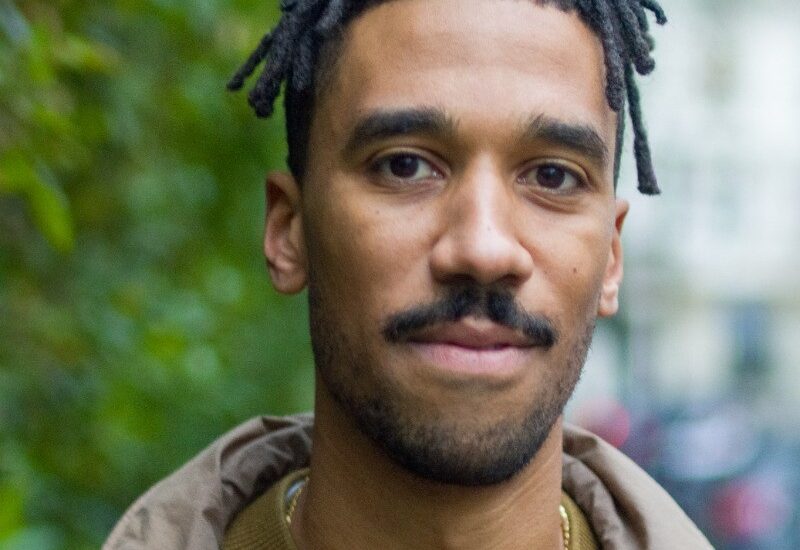Conversation Starter: An Interview with Cassiah Joski-Jethi

Fresh from the success of her award-winning play ‘Under My Thumb’, writer Cassiah Joski-Jethi is not resting on her laurels. She’s back with a brand new project, the surreal and dialectic short feature ‘Polly’. She speaks to Afropean about the genesis of the feature, fundraising, gender-related social conditioning and starting out as a reluctant writer…
First of all, you have a very pretty name! Please could you say a little about your cultural background?
Thank you! I believe my parents were going to call me Keziah but wanted a ‘softer sound’. My mum is American and my dad is Canadian, and my mum’s parents have German and Polish heritage, and my dad’s parents have Indian heritage. So I’m a big mix! I grew up experiencing lots of different traditions and I travelled a lot, so I feel very lucky.
For those unfamiliar with your work, please explain how you got into writing. From where did the interest come? It’s funny, because growing up, I always thought that the one thing I would never be is a writer. Now it’s my job! I’m not great at writing prose, but I’ve always had ideas for films and theatre in my head. Growing up, film was a huge part of my life. So in 2012 I thought I would just take the leap and see what happens. Writing a script is so different from writing a novel or an article as it’s so visual and it has its own little language you have to learn. I just fell in love with it.
You’ve recently enjoyed critical acclaim for ‘Under the Thumb’, a dark dystopian fringe piece set in a futuristic female only prison. How did the idea for that project come about?
Under My Thumb came about after hearing so many stories about sexual assault and discrimination based on gender. I had a lot of areas I wanted to explore, so I created this world which allowed me to address and challenge the standard expectations of what sexism is and what it’s like to be a woman growing up in a patriarchal society.
Your work clearly has a strong feminist slant. You’re currently raising money for a forthcoming project, the short film ‘Polly’. You have said that one of your aims is to challenge the narrow definitions of femininity and the pressure on women to conform to certain ideals. Can you expound on this objective and also why you chose to do this project at this particular time?
I feel that gender roles are really ingrained into our society; so much so that many people don’t realise it and it can be so damaging for individuals. I want to create work that brings these things into the forefront and explores them in new ways, so the audience can have that ‘light bulb’ moment and realise, wait, things aren’t quite right yet.
Definitely. The rigidity of these roles can have adverse effects on both men and women. For example, narrow concepts of what it means to be strong and masculine and the pressure that comes therewith could be an underlying factor in regards to mental health issues amongst the male population; something that organisations such as CALM are trying to tackle. Is this type of social conditioning something you plan to continue exploring in future work?
Absolutely, gender roles are something that I explore in all of my work. In a television series I’m developing, for example, the male protagonist goes through a dark journey attempting to live up to his father’s expectations of him to be strong and merciless, even though that is not who he is.
Did you do any specific research for ‘Polly’, i.e. interviews with various women to glean their thoughts on beauty ideals? As a dark-skinned woman of African descent for example, I feel there’s another layer to societal (mis)representations of beauty since we are mostly positioned as being far removed from the ‘acceptable norm’. The recent debate in South Africa over school codes of conduct in regards to hairstyles, supposed neatness and how this is linked to institutionalised prejudice, comes to mind… I didn’t do specific research interviewing women for the project as I drew on my experiences and experiences I know my peers have lived through, which includes stories from women of all different backgrounds. And absolutely, there is a divisive and dangerous attitude toward skin tone and beauty, ranking what is ‘beautiful’ in our society and what is accepted in our establishments.
‘Under My Thumb’ started off as a short film but you believed that it was the wrong medium for it. Why did you think ‘Polly’ would work as a short feature in the way it wouldn’t as a play? Polly is a quick snapshot into this surreal world and one character’s experience in it. It’s highly visual and uses a lot of imagery as metaphors relating to femininity and the pressure we talk of. ‘Under My Thumb’ was a lot more complex as a concept and also featured six individual characters in the ensemble rather than one protagonist, so all of the women’s stories needed to be justified and explored, which was too much to do in a short film. Maybe a feature in the future! 
You mentioned that you have chosen exaggerated representations of femininity/non-femininity in ‘Polly’ to challenge what you think is society’s ‘naïve’, binary approach to viewing the world. Is this a generalisation? Does it depend on culture? Do you think there are particular issues in which this is the case more than others?
I’m aware that I’m centralising it around my own culture, so I’m focusing on the representations of femininity that I have personally experienced, spending most of my time in the UK and USA growing up. I’m also aware that I have been raised in a privileged Western society in which issues will be highly different to other parts of the world. I think within the Western society I have experienced, I do believe the mainstream ideals asserted through attitudes and the media is, in general, binary.
Would you say these ideals of femininity are limited to just the aesthetic or do they pervade other aspects of societal expectations?
Absolutely not limited to the aesthetic, it’s very much linked to the expectations for women’s career goals, women’s role in the home, and more.
Let me be more specific. In the field of linguistics for example, numerous studies have shown that across different cultures, women tend to orientate towards what is described as ‘standard language’, in regards to accent and grammar etc. Of course this isn’t uniformly the case but it is a strong example of how even our use of language is ‘gendered’. It is believed that this is because society tends to scrutinise and judge women’s behaviour more strictly and we internalise these pressures. There’s also the issue of being conditioned to believe our role is to please; both aesthetically and in regards to conduct whilst men tend to be measured by their achievements and acquisitions…
Absolutely, I agree that these beliefs are so engrained in us and in the world around us, so in turn we do feel attractive and good when we put on make-up and wear certain clothes. It’s such a complex issue with many different factors going into why women (well, people in general) dress and act a certain way, that’s why it’s so important to start an honest, open conversation in society to try and reach the root causes as to where we have ended up today.
You speak in terms of ‘girlie-ness’. Do you think women who choose to express their femininity in more conventional ways are necessarily conformist or insensible to the fight against gender stereotypes?
I think everyone has a right to choose how he or she wants to present him or herself. There are women who love to wear make-up and dress up in a conventionally ‘feminine’ way because they want to, and that’s not the problem. The problem is how this is heralded as the ideal way to be and the attitudes towards people who do not adhere to this ‘traditional’ image. As soon as women start dictating to one another what they should and shouldn’t do, that’s not very equality driven, in my mind.
Do you have an ‘ideal demographic’ for ‘Polly’? Whom in particular would you like it to reach?
I would ideally like to raise awareness, so that people are more understanding, patient and open when encouraging young people. I would like it to challenge people’s way of thinking, and also give hope to young people and women that these are subjects filmmakers are not afraid of tackling and we hope they feel we’ve given them a voice.
Do you have plans to make ‘Polly’ into a full-length feature depending on the reaction to the short film?
I think the strength of ‘Polly’ is how it can assuredly express the themes and ideas within it in a highly visual way in the short film medium. I don’t expect I would want to develop it into a feature, but hey, never say never!
Finally how can readers get involved with the fundraising effort?
If readers can support us by donating to our campaign, we would be so grateful! Sadly, filmmaking is an expensive venture and we need to raise £9000 in order to make our film a reality. This will go towards paying cast, crew, catering, locations, insurance, props, costume, composition and editing. The deadline is 4 November 2016. If you are unable to donate, if you could share, tweet and email to likeminded people and encourage them to support what we are doing, please do! Thank you for your time Cassiah.


